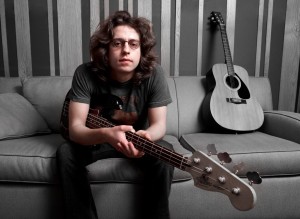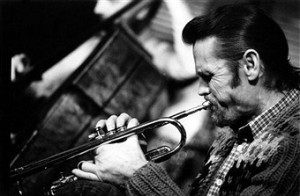 It may seem strange that musicians and other artists would have addiction treatment programs developed specifically for them, but grouping people into treatment programs based on the field they work or vocation in is quite common. This tactic is useful for treating artists and musicians because they are a very specific brain type. Creative people respond to certain treatment methods and therapies better than others. Connecting people to addiction treatment programs that consider the way they think is part of what makes addiction treatment effective.
It may seem strange that musicians and other artists would have addiction treatment programs developed specifically for them, but grouping people into treatment programs based on the field they work or vocation in is quite common. This tactic is useful for treating artists and musicians because they are a very specific brain type. Creative people respond to certain treatment methods and therapies better than others. Connecting people to addiction treatment programs that consider the way they think is part of what makes addiction treatment effective.
Artists and musicians are obviously very expressive people, but they can be very particular about how and to whom they express themselves. It is important for a musician who is struggling with addiction to find a program that works with their communication needs. Sharing in rehabilitation is either done through grou por individual therapy. It is important that the client receives more of whichever makes them more comfortable.musicians are qualified as highly intelligent.
Those devising a treatment plan for musicians do so remembering that they do not tend to favor linear learning, so workbook and reading exercises are geared towards the creative mind, which tends to learn peripherally. This involves selecting particular course materials that were written by experts on the addicted creative mind. This is a specific niche, but quality material does exist in it.
Musicians are emotive, sensitive, feeling people. Connecting with them on a soulful level is very important to their addiction recovery. Musicians are also qualified as highly intelligent people, as writing and performing music uses many parts of the brain. For this reason, it is critical to engage a musician at an intellectual level as well in order to inspire their recovery to its full capacity.
Lastly, and perhaps most obviously, the therapeutic methods should be largely creative. Every rehabilitation offers different forms of therapy, which may range from physical activities such as nature walks, yoga and gym time, to creative activities, such as painting, collaging and drawing. Programs that are geared towards musicians will often include time practicing with instruments and vocals.
 Creative artists of every variety are unique, talented people. Noncreative people can only marvel at the creative capacity of artists and the mystique that surrounds them. However, this interpretive, impulsive personality comes with its problems as well. Artists are far more likely to experience addiction problems than most other professions. Similarly, a majority of people who check into rehab are qualified as creative types. Addicts are boundary pushers, a quality that can be used for good and for bad depending on how they choose to channel their energy.
Creative artists of every variety are unique, talented people. Noncreative people can only marvel at the creative capacity of artists and the mystique that surrounds them. However, this interpretive, impulsive personality comes with its problems as well. Artists are far more likely to experience addiction problems than most other professions. Similarly, a majority of people who check into rehab are qualified as creative types. Addicts are boundary pushers, a quality that can be used for good and for bad depending on how they choose to channel their energy. Creative artists of every variety are unique, talented people. Noncreative people can only marvel at the creative capacity of artists and the mystique that surrounds them. However, this interpretive, impulsive personality comes with its problems as well. Artists are far more likely to experience addiction problems than most other professions. Similarly, a majority of people who check into rehab are qualified as creative types. Addicts are boundary pushers, a quality that can be used for good and for bad depending on how they choose to channel their energy.
Creative artists of every variety are unique, talented people. Noncreative people can only marvel at the creative capacity of artists and the mystique that surrounds them. However, this interpretive, impulsive personality comes with its problems as well. Artists are far more likely to experience addiction problems than most other professions. Similarly, a majority of people who check into rehab are qualified as creative types. Addicts are boundary pushers, a quality that can be used for good and for bad depending on how they choose to channel their energy.
